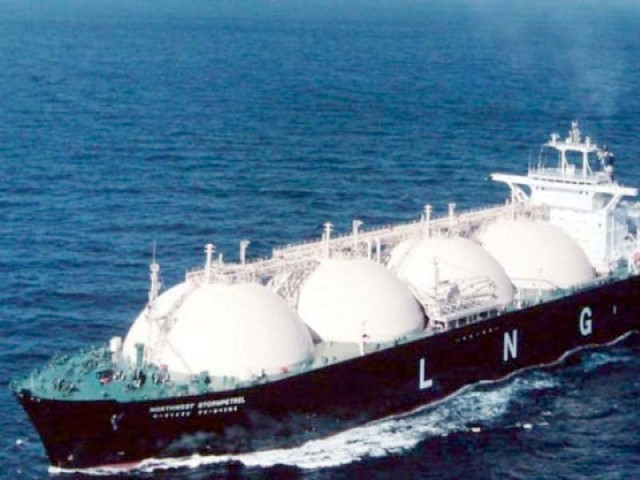Expensive RLNG burdens economy
Pakistan forced to import RLNG at $13.40/ mmbtu despite global spot prices being lower

Pakistan’s reliance on costly regasified liquefied natural gas (RLNG) imports under long-term agreements is taking a toll on the country’s economy. While international spot markets offer RLNG at a cheaper rate of $9.5/mmbtu, Pakistan is compelled to import it at an average price of $13.40/mmbtu. This significant price disparity is raising concerns among experts.
According to data from Arif Habib Limited (AHL), Pakistan imported 10 cargos of RLNG in May 2023 under long-term agreements. The weighted average price for Sui Northern Gas Pipeline Limited (SNGPL) stood at $13.40/mmbtu. Speaking to The Express Tribune, AHL, Head of Research, Tahir Abbas explained that Pakistan is bound by these long-term agreements, ranging up to 15 years, and cannot abandon them to procure cheaper gas from the spot market. However, additional RLNG cargos can be purchased from the spot market to meet domestic demand.
The combination of RLNG imported under long-term agreements and spot market purchases could result in an average lower price, benefiting consumers. However, Pakistan faces challenges due to a lack of foreign exchange reserves to procure additional gas cargos to meet local requirements. Additionally, the gas circular debt has escalated to approximately Rs500-600 billion, contributing to the total circular debt of Rs1.7 trillion in the energy sector. Abbas highlighted that long-term suppliers have consistently sold gas to Pakistan at fixed prices, even during global energy crises when RLNG prices surged to $40/mmbtu in winter 2022. The current drop in RLNG prices in the spot market is a result of the summer season and low global demand, coupled with sluggish economic growth and high inflation worldwide. Pakistan imported eight out of the ten cargos in May through Pakistan State Oil (PSO), with the remaining two imported by Pakistan LNG Limited (PLL).
Although the number of cargos imported in May remained stable compared to the previous month, gas load shedding persists, affecting even toppriority residential consumers. The demand for gas in Pakistan exceeds the available supply, with an estimated daily demand of 6,500-7,000 mmbtu and supplies of around 4,000-4,500 mmbtu through imports and domestic production. The government’s decision to increase gas prices by up to 124% for various sectors since February 2023 has burdened gas marketing firms, despite declining sales volumes due to reduced output from local fields and depletion of gas reserves in the country.



















COMMENTS
Comments are moderated and generally will be posted if they are on-topic and not abusive.
For more information, please see our Comments FAQ